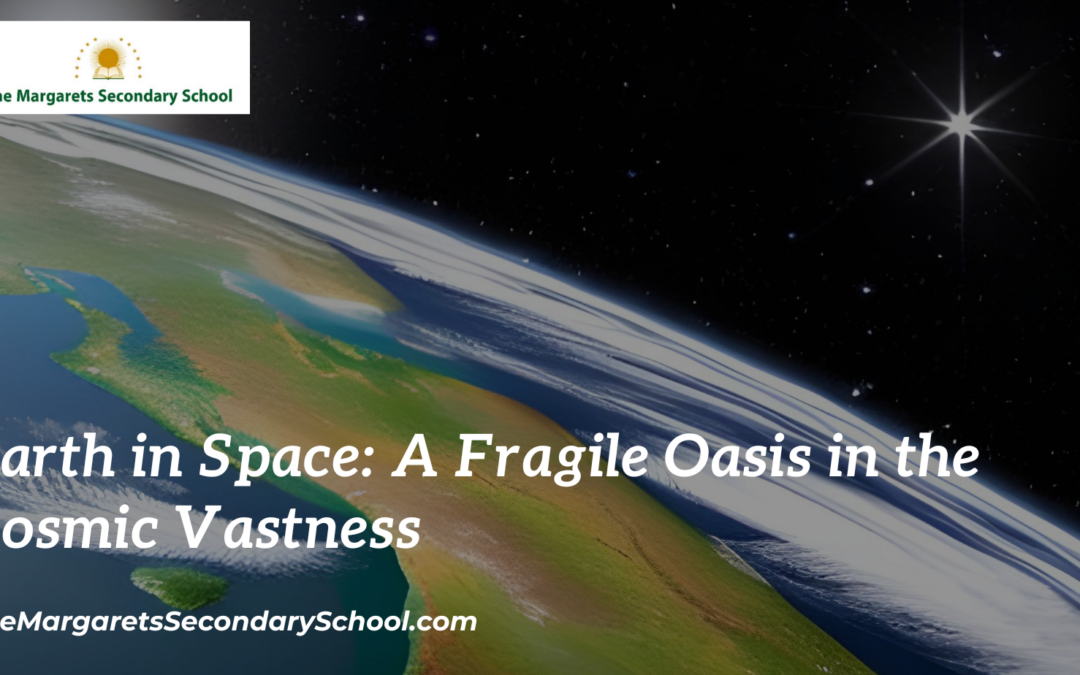Earth in Space
In the infinite expanse of the cosmos, our pale blue dot, Earth, occupies a special place. As the only known planet to support life, Earth’s unique position in space has nurtured the diverse ecosystems, cultures, and civilizations that call it home. This article embarks on a journey through space to explore the remarkable attributes of our planet, its place in the solar system, and the significance of preserving its delicate balance.
Earth’s Cosmic Neighborhood
- The Solar System: Earth is the third planet from the Sun in our solar system. This system comprises a central star, the Sun, and a retinue of planets, moons, asteroids, and comets that orbit it. Our planet’s siblings, Venus and Mars, share similarities but also striking differences in their atmospheres and environments.
- Orbital Dance: Earth’s elliptical orbit around the Sun is responsible for the changing seasons, as well as the cycle of day and night. Our axial tilt causes the variation in solar energy received at different latitudes, giving rise to diverse climates.
- The Goldilocks Zone: Earth’s position in the “habitable zone” of our solar system allows it to maintain temperatures conducive to liquid water—a critical ingredient for life as we know it.
Earth’s Unique Features
- Blue Marble: Earth’s blue hue, seen from space, is due to the vast oceans that cover about 70% of its surface. These oceans play a crucial role in regulating temperatures, absorbing and releasing heat.
- Life Abundant: Earth is teeming with life in a breathtaking array of forms, from microscopic bacteria to towering trees and complex animal societies. The biosphere, a thin layer of life, extends from the deepest oceans to the highest mountains.
- The Fragile Atmosphere: Our planet’s life-sustaining atmosphere, primarily composed of nitrogen and oxygen, protects us from the harshness of space and enables weather patterns and oxygen-dependent life.
The Importance of Preservation
- Environmental Balance: Earth’s delicate equilibrium sustains life. Disruptions caused by human activities, such as deforestation, pollution, and climate change, threaten this balance and the well-being of future generations.
- Space Exploration: By venturing beyond our planet, humans gain a deeper understanding of Earth’s place in the cosmos. Space exploration offers insights into the origins of our solar system and the potential for life elsewhere.
A Call to Action
- Climate Crisis: The effects of climate change are a pressing concern. Rising temperatures, melting glaciers, and more frequent extreme weather events underscore the urgency of collective action to mitigate these impacts.
- Conservation Efforts: Preserving Earth’s biodiversity, protecting natural habitats, and embracing sustainable practices are crucial steps toward ensuring a habitable planet for generations to come.
Conclusion
Earth’s presence in the cosmos is a testament to the intricate interplay of celestial forces that have allowed life to flourish. As we continue to gaze into the heavens and explore the cosmos, let us remember that our responsibilities lie not just in the stars, but here on our remarkable planet. Earth’s place in space reminds us of the rare gift of life and the shared responsibility to safeguard its wonders for future generations.





